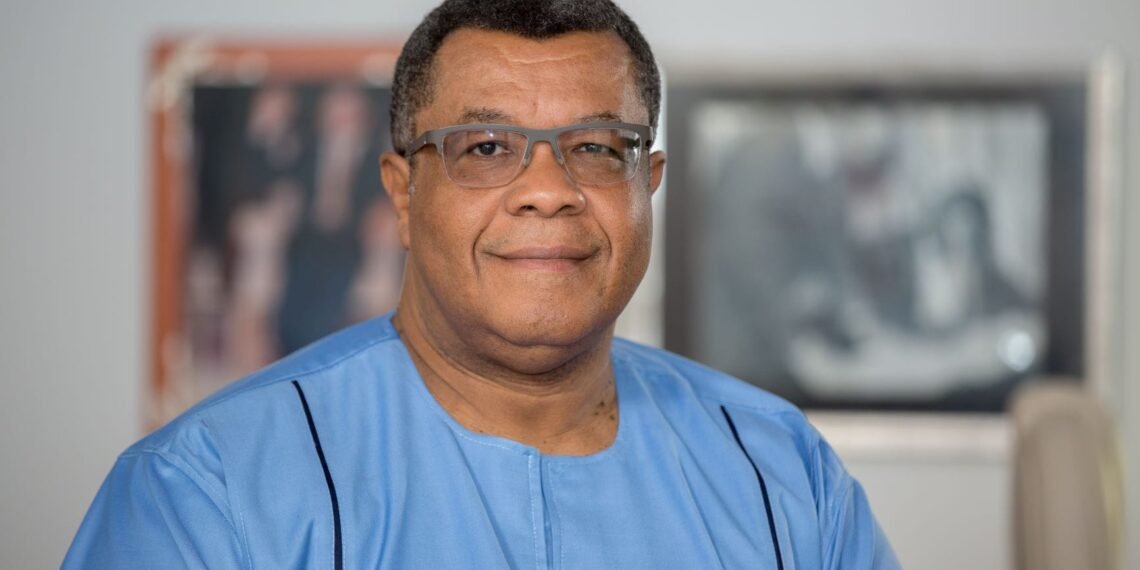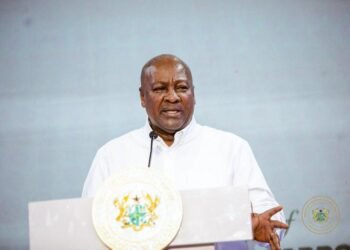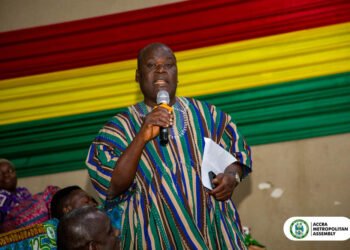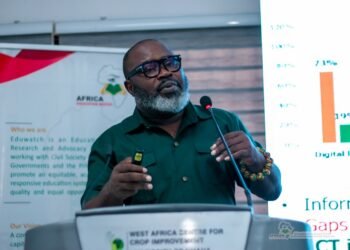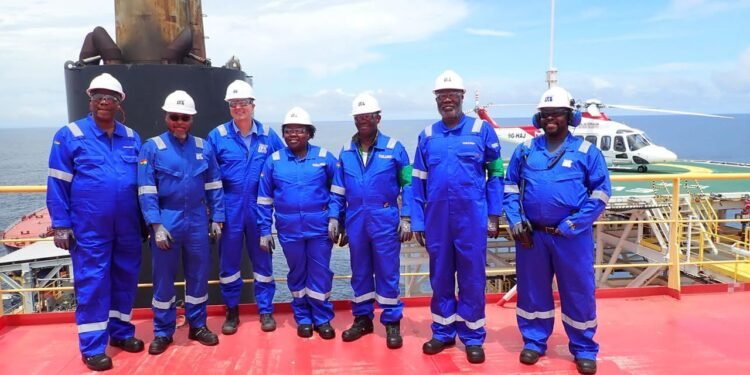Goosie Tanoh, Presidential Advisor for the 24-Hour Economy & Accelerated Export Development has reaffirmed the transformational ambition behind Ghana’s 24-hour economy, describing it as a deliberate strategy to secure the nation’s self-sufficiency and protect its economy from global disruptions.
According to him, the program is not just an economic reform agenda, but a national survival mechanism.
“The idea is to build the country to a point where whatever happens externally, we have enough not to knock us off. That is the purpose of the twenty four hour economy program. To create food self sufficiency, food sovereignty”
Goosie Tanoh, Presidential Advisor for the 24-Hour Economy & Accelerated Export Development
Speaking in detail, Mr. Tanoh noted that Ghana spends over $2.6 billion annually on food imports, a figure he believes is unsustainable, particularly in the face of external shocks like pandemics or international supply chain disruptions.
The 24-hour economy is therefore designed to shift the country away from dependency and build internal resilience.
Tanoh explained that the policy is aimed at achieving food sovereignty, reducing Ghana’s dependence on external food sources and bolstering agricultural output. “That is the purpose of the 24-hour economy program,” he said.
He noted that the gains from recent agricultural programs, like the Feed Ghana initiative, were already visible and made a projection on the 24 hour economy. “Within 18 months of the start of the program, we’ll begin to see results in terms of output,” he said, referencing rising agricultural GDP figures and a reported 16.3% increase in fisheries.
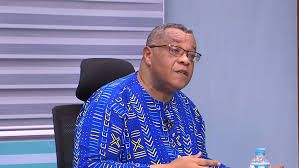
“The 24-hour economy is designed for food self-sufficiency, food sovereignty, supply chain efficiency, market efficiency, and excess raw materials to industry after we finish feeding ourselves and animals”
Goosie Tanoh, Presidential Advisor for the 24-Hour Economy & Accelerated Export Development
He emphasized that by going beyond food security, to generate excess raw materials for industry, the country sets itself on a path of true economic sovereignty.
Anchors of the Transformation
Breaking down the 24-hour economy, Tanoh identified three primary anchors: production transformation, supply chain efficiency, and human capital development, and drew attention to Ghana’s logistics inefficiencies.
“If you look at the global average, the logistical cost component of products at market is 15% but in Ghana its 60% – so really, after farm gate, we’re uncompetitive, and we need to resolve that”
Goosie Tanoh, Presidential Advisor for the 24-Hour Economy & Accelerated Export Development
Tanoh believes reforming these systems is crucial if Ghana is to compete both with imports and on global export markets. He also highlighted the importance of investing in human capital.
“We want our people to be digitally fluent, able to work with digital technology, invest in digital technology, and also change the mindset so people become ethically motivated”
Goosie Tanoh, Presidential Advisor for the 24-Hour Economy & Accelerated Export Development
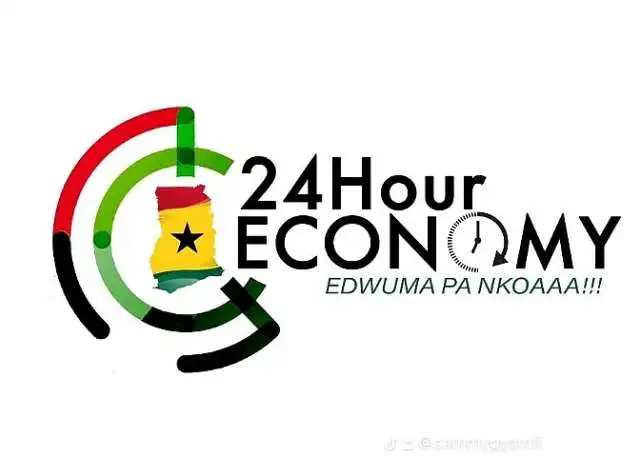
According to Tanoh, the eight flagship programs under the 24-hour economy are directly linked to the three foundational pillars. These include Grow 24, Make 24, and Build 24, which together support agriculture, manufacturing, and construction. The other programs are Aspire 24, Show 24, Fund 24, Connect 24, and Go 24.
“Grow 24 is the agricultural component of creating the requisite environment which is under production transformation, to produce more in the value chains we’ve chosen – oil seeds, cereals, tubers and so on and so forth, which are both industrial crops and also food crops”
Goosie Tanoh, Presidential Advisor for the 24-Hour Economy & Accelerated Export Development
Make 24, the industrialization arm, connects directly with agro-processing, textiles, garments, pharmaceuticals, and technology, he noted, adding that industrial parks are being planned around these areas.
In terms of infrastructure, Tanoh said agro-ecological parks are being developed along Lake Volta.
“We need water for irrigation, land to grow the items, connectivity because now data is everything – we need transport and logistics,” he said, underscoring that transporting goods via the lake costs one-eighth of road transport, with a significantly smaller carbon footprint.
“It goes north, it goes south, it goes east, it goes west,” he added, stressing the lake’s national strategic utility. Tanoh also revealed new thinking in construction under Build 24.
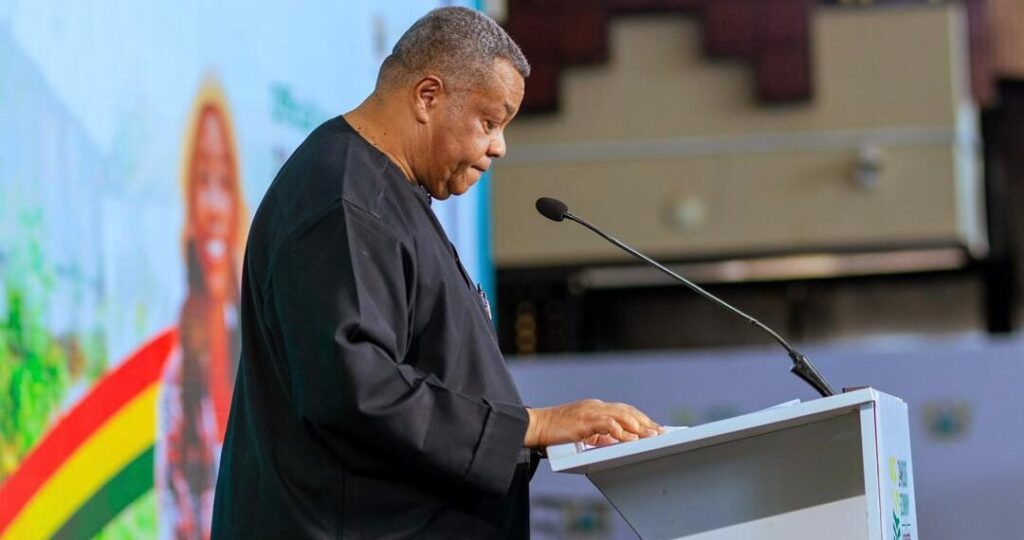
“We have the potential for developing local raw material – the use of bamboo as part of the structural component of building,” he said, referencing best practices in the Philippines, Vietnam, and China. He suggested that Ghana can use composites to reduce cement usage and achieve better ventilation and structural strength.
In sum, the 24-hour economy strategy is a multi-layered policy designed to overhaul Ghana’s economic fundamentals from the ground up.
At its core lies the determination to not only withstand external shocks, but to retool production, infrastructure, and labour towards self-reliance and global competitiveness.
READ MORE: Lyrical Joe Blasts Cult-Like Fan Culture in Ghana



